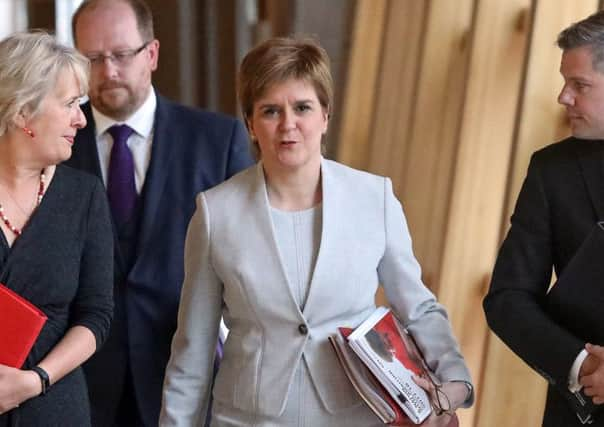Leader: Holyrood must use its powers


Scotland on Sunday was firmly in favour of devolution when the prospect was raised in 1997 and, since the establishment of the Scottish Parliament two years later, we’ve been a critical friend to the institution.
As the parliament in Edinburgh reaches its 20th anniversary, we continue to believe that devolving a number of powers from Westminster to Holyrood was entirely the correct thing to do; Holyrood has acted wisely on a number of key issues, most notably leading the UK on the smoking ban in public places and on equal marriage.
Advertisement
Hide AdAdvertisement
Hide AdBut while there is much to admire about that which the Scottish Parliament has achieved, questions remain about whether Holyrood is as effective as it could be.
Reflecting on the past two decades, we wonder whether the parliament might have done more. For example, despite having had the power to vary taxes since day one, it has never done so. MSPs arguing over funding of services have not been courageous enough to take tax matters into their own hands.
The devolution of further tax and benefit powers is hailed by the SNP as a victory for the Scottish Government. But what is the point of having these powers if they are not to be used?
The SNP has been in power for a dozen of the parliament’s 20 years and, while that party has introduced eye-catching policies such as free tuition fees and free prescriptions, it has been reticent in recent years to legislate.
This, we know, is because ministers were wary about rocking the boat in advance of 2014’s independence referendum. That same hesitation to act lingered after the referendum, perhaps because ministers were convinced a second vote on the constitution would take place sooner rather than later.
A majority of votes for pro-UK candidates, coupled with the SNP’s loss of 21 seats, in June’s general election means the Scottish Government’s referendum plans are sunk. It must now refocus on the domestic agenda.
This being so, let’s see a more confident Holyrood. A good start would be the bold use of powers long fought for but so far ignored.